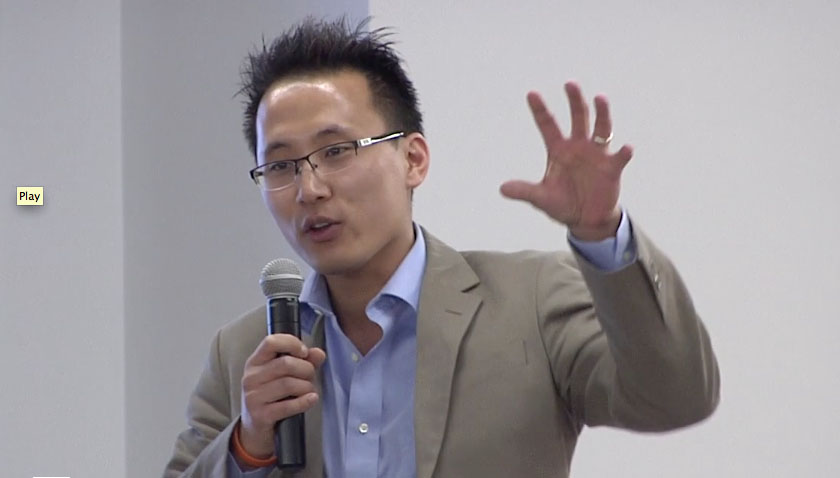Nicholas Hartlep did horribly on the ACT. His teachers told him he wasn’t college material but he might be able to get into a two-year school.
Hardly what you expect from an Asian.
Which is his point.
There’s a stereotype that Asian Americans are stellar students, successful, hard workers and just happy to be in the U.S.
That’s racist, said Hartlep, author of The Model Minority Stereotype: Demystifying Asian American Success. The assistant professor in the Department of Educational Administration and Foundations is working to debunk the myth that all Asian Americans are the same, that they’re hard-wired for success by their culture. The book is starting to get traction and he recently was contacted to write an op-ed piece on the topic for The Washington Post. Take a look at Hartlep talking about the issue.
“Asians tend to be grouped together,” he said. “It’s a false claim that all Asians are highly successful, that they’re good at math.”
The truth is Asians in the U.S. are not as successful as they are made out to be by the media, they do not attain extraordinarily higher levels of education than whites and they are concentrated in community colleges, not Ivy League schools, he said.
Hartlep is Korean but was adopted by a white family in Wisconsin. Two years ago, he found his biological father, a Korean author and pastor. Part of Hartlep’s interest in trying to change the narrative about Asians is because he feels he owes it to his ancestors.
His identity has always been in flux. When he’s with white friends, he’s reminded he’s not white and when he’s with Korean friends, the same is true. And there are other reminders. In his office there’s a photo of him carrying one of his two young daughters. An “X” is scratched across his face. The photo used to be taped on the outside of his office door. When it was defaced, he moved it inside as a visual reminder of the work that still needs to be done.
Saying Asians are a model minority makes them “honorary whites,” he said. And drawing attention to Asian Americans’ success demonizes other minorities, such as blacks. “The problem of the 21st century is the color line. If blacks are the problems, how are Asians the solution? They’re the solution because white, colorblind racists can point to Asians and say, ‘We persecuted you, there was the Japanese internment … and you are better now. Hooray for you Japanese. Blacks, you all need to get with the program and stop using the welfare system.’ It’s a political device, hyperbole, but it serves a purpose.”
The media perpetuates the model minority stereotype, he said, citing Amy Chua’s bestseller, Battle Hymn of the Tiger Mother, about raising successful children. He also criticized the entertainment industry for casting Asians in stereotypical roles and the fetish of Asian women in pornography.
What Hartlep hopes to do is write a compelling counter narrative that criticizes and pokes holes in these myths.
“Certainly we don’t want kids killing themselves because they haven’t achieved or women having plastic surgery to make themselves look more European because they feel they’re of little value,” he said. “Lots of education needs to occur.”
Hartlep is concerned that Asians may be discouraged from pursuing a creative career because they’re supposed to excel in the math, science and technical fields. Others might be overlooked if they have special needs. “What about the Asian American child who wants to be a poet or an artist, but the teacher assumes he’s not creative? How about the Korean student who needs special education, but the teacher doesn’t recognize it? There’s a halo effect. You’re Asian.”
In the workplace there’s a stereotype that Asians are not good leaders because they’re smaller in stature and believed to be quiet, passive and compliant. “We call it the bamboo ceiling,” Hartlep said.
Asian Americans sometimes perpetuate the model minority stereotype because they benefit from the positive attributes assigned to them, he added. “But do they truly benefit? I’d say not. The contribution I want to make is pulling all this together for people. We have knowledge that tells us the model minority stereotype is false.”

